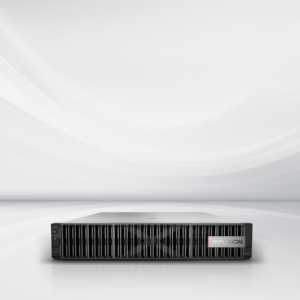FusionServerは、アルバート・アインシュタイン研究所が重力波の信号解析を強化するためのコンピューティングリソースを拡張するのに役立ちます
"The work our scientists carry out is very detailed and is built on highly complex special algorithms which need immense amounts of computing power to run. The cluster extension with the new machines has allowed us to double the overall computing power of Atlas and has significantly improved our ability to perform follow-up analyses of gravitational wave signals. We are very happy with the way everything has worked and are impressed with the professional support we have received."
——Cluster Administrator, AEI ORC
Dr. Henning Fehrmann
|Background
The Max Planck Institute for Gravitational Physics, also known as the Albert Einstein Institute (AEI), was founded in 1995 for the purpose of carrying out research into the fundamental laws of gravitation. As part of this, its Observational Relativity and Cosmology (ORC) division, based in Hannover, Germany, is focused on the direct observational consequences of Einstein’s General Theory of Relativity, and its relationship to astrophysics and cosmology.
This work is very compute-intensive and its success is highly dependent on the amount of computing power available to process the observational data. For this reason, one of the central activities of the ORC team is to maintain and increase the group’s computing resources. Its main responsibility is to manage the Atlas computing cluster, the world’s largest and most powerful resource dedicated to gravitational wave searches and data analysis.
|Challenges
How to Meet the Growing Demands for More Processing Power
With growing demands for more processing power, the Albert Einstein Institute needed to find a cost-effective solution to upgrade its world-leading Atlas computing cluster.
It’s vital that the power of Atlas is not only maintained, but can be easily expanded to handle the increasing requirements of the data analysts using it. Dr. Henning Fehrmann, Cluster Administrator, AEI ORC, explains: "The work our scientists carry out is very detailed and is built on highly complex special algorithms which need immense amounts of computing power to run. With the second stage of an important project about to start, we were asked to increase the capacity of Atlas so it could be completed successfully."
As with any publicly funded body, the ORC team also has to work to a very tight budget. As such, it is very aware of being accountable for what it spends and the need to demonstrate value for money in any purchase it makes. With this in mind, a public tender was issued to find a solution that would best meet its requirements in terms of both price and performance.
|Solutions
FusionServer Doubles the Overall Computing Power
Several responses were received proposing solutions built on equipment from various leading vendors. Each was evaluated against a list of pre-defined requirements with the FusionServer solution, offered by IT distributor Go Virtual, standing out as the one that most closely met what it was looking for.
The FusionServer RH1288 V3 is a general-purpose rack server designed to support a range of data intensive applications. It features High-Performance Computing (HPC), large storage capacity, low power consumption, with high scalability and reliability, and is easy to manage and deploy.
Its small size means that double the computing capacity can be housed in a conventional rack, potentially saving up to 50 percent in location costs.
"We knew that the on-going running costs of the new servers were also an important factor for AEI. With a combination of very energy-efficient power supply units and simple management and maintenance, the FusionServer more than meets this need," says Dr. Hans-Joachim Hinz of Go Virtual.
Go Virtual completed the installation of the solution in three phases and everything went to plan. A few minor problems were experienced but they were dealt with quickly. The FusionServer support team provided support every step of the way, from the initial architecture design through to final commissioning.
|Benefits
"The cluster extension with the new machines has allowed us to double the overall computing power of Atlas and has significantly improved our ability to perform follow-up analyses of gravitational wave signals. We are very happy with the way everything has worked and are impressed with the professional support we have received. The free software for CMOS and BMC management has been an added bonus," concludes Dr. Henning Fehrmann.




